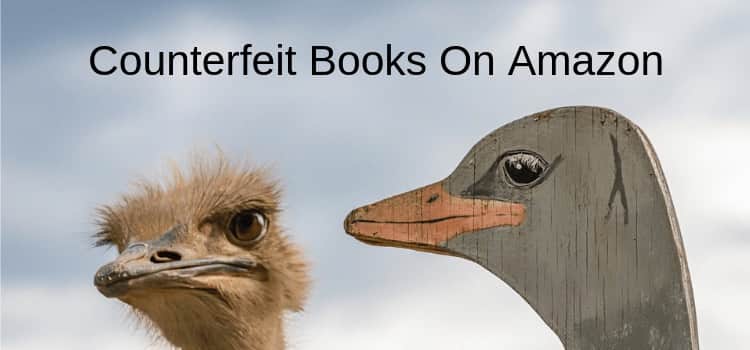
Counterfeit and pirated books on Amazon are still a big issue. However, Amazon has taken so little action, and there could also be a problem with other counterfeit goods.
You could think that identifying sales of counterfeit books would be easy. If you publish a book on Amazon, surely Amazon could at least check for plagiarism when pirates copy your text.
The problem is not new. I have been writing about pirated ebooks and books for a very long time. Third-party sellers are making a lot of money from pirated, fake, and counterfeit books, and more importantly, so is Amazon.
Is this why Amazon seems to be acting like an ostrich and is burying its head in the sand when it comes to taking real action?
How bad is the problem of counterfeit books?
It’s terrible, to be honest.
You only need to do a quick Google Search for counterfeit books to find out how serious this issue is.
It affects fiction, non-fiction, and education publishers. Counterfeit textbooks, in particular, are rife.
It is well worth reading this article in the New York Times to understand the scope of counterfeiting.
It concerns a medical publisher who did some test buys of their book.
This short extract from the article is mind-boggling.
Antimicrobial Therapy, which publishes “The Sanford Guide to Antimicrobial Therapy,” bought 34 of its handbooks from Amazon and Amazon’s third-party sellers. At least 30 were counterfeits.
Do you need to read those numbers again? Thirty-four book purchases and thirty fakes.
It is not a new problem. The Atlantic wrote about the problem of plagiarism in self-publishing and Amazon some years ago.
The issue then was copying and republishing romance novels.
Proof of counterfeits
In another article in Ars Technica, Bill Pollock goes further.
He calls out Amazon for selling what he says are counterfeit copies of his company’s book, The Art of Assembly Language—copies that Amazon apparently printed. He includes an image of the ISBN Amazon included for the forgery.
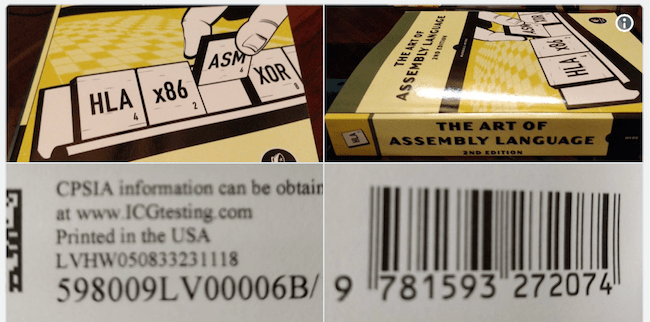
In another case, Fox News reported that an author lost $240,000 in sales due to fake copies sold on Amazon.
The publisher, InterVarsity Press (IVP), discovered that the book was copied and sold by a third party on Amazon for about nine months before a customer complaint raised the issue. The article includes the image below of a glaring typo on the title page.
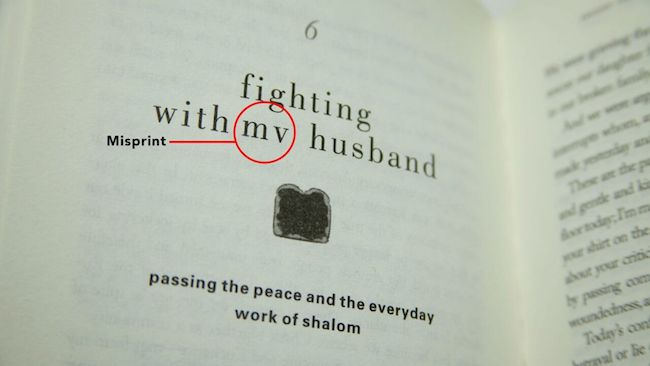
A fake before publication
Another recent example of a counterfeit scam was a book that was pirated months before its release.
The book, “Imminent: Inside the Pentagon’s Hunt for UFOs” by Luis Elizondo was eagerly anticipated by readers interested in the topic.

However, as Entrepreneur reported, a fake version of the book was available to purchase on Amazon months before its official release.
While the cover was the same as the official book, the interior contained blank pages.
When I checked Amazon, this fake book appeared to have been removed.
But that doesn’t address the problem of why it is so easy for scammers to publish fake and pirated books using Amazon KDP publishing.
Amazon’s response
How can Amazon be serious about anti-counterfeit measures when it is the printer and publisher of a fake book by an Amazon seller?
Yes, Amazon seemed to commit itself to doing something about the problem with Project Zero.
But the program puts the responsibility on the publisher. It is up to them to report intellectual property issues. It is not up to Amazon to find problems.
And worse, it is an invitation-only program. So, bad luck if you are not a big enough publisher to be chosen by Amazon. There have been occasional wins against publishers. But not very many.
Publishers Wiley, Cengage, Pearson, and McGraw-Hill Education won a multimillion-dollar lawsuit against Book Dog Books, a seller of fake textbooks.
What can you do?
Sadly, there’s not much you can do about book pirates and scammers on Amazon.
It applies if you are self-publishing on Apple, Google Play, Kobo, or any other platform.
Over the years, I have tried to notify and communicate with Google and Amazon about piracy issues with my books.
In one instance, one of my print books was indexed, listed, and available in PDF download by pirates on Google. It happened within just a few weeks of publishing.
Another problem arose when Google Play allowed a counterfeit paperback version of one of my books to be available for sale.
In both of these cases, Google was extremely non-committal, flippant, and bordering on rude in the responses I received.
Mass market books
My last adventure was with Amazon. A mass-market seller was trying to sell my book for $2,796.00. Yes, you read that right. nearly $3,000.00.
When I raised the issue with Amazon, I received a limp copy and pasted reply. So, I gave up and instead had a laugh.
You often read that the big Internet companies operate with a Wild West attitude. This is probably a fair description of the situation.
There are copyright laws all around the world to protect authors.
But none of these laws seems to apply to tech giants.
And if they do, you get the feeling that they can ignore them with impunity.
Amazon is clear in its advice to publishers. It is not up to Amazon to decide what is right or wrong.
It places the total responsibility on the publisher in its Content Guidelines.
Illegal or infringing content
We take violations of laws and proprietary rights very seriously. It is your responsibility to ensure that your content doesn’t violate laws or copyright, trademark, privacy, publicity, or other rights. Just because content is freely available does not mean you are free to copy and sell it.
You would need a massive amount of money to think about taking legal action against Amazon.
You know your rights have been infringed, but it would be a long, expensive, and futile exercise.
Conclusion
It’s unfair. It’s wrong. But fake book scams on Amazon are a fact of life if you are self-publishing.
You are a small fish in a massive pond.
Amazon is the biggest seller in the world of ebooks and books. By a huge margin.
So, if you want to self-publish and stand any hope of selling your books, you have to publish on Amazon.
But when you do, your book in ebook or print-on-demand paperback are both electronic computer files.
They can be copied in a few seconds by unscrupulous book pirates and scammers. Nothing at all is secure on the Internet.
All you can do is hope that book buyers are a little savvy. In most cases, they will buy your original and won’t fall for the fakes.
It won’t be a big issue for you in this case.
But if your book becomes very popular?
Yes, you should check to see if your book has been counterfeited and offered for sale without your approval.
If it happens, you should contact Amazon, of course.
But don’t hold your breath for any immediate action.
The problem of fake and counterfeit books on Amazon is not going to go away anytime soon.
Amazon has made noises and a few efforts over the years to minimize the issue of counterfeit products. But it’s a system of selling books that is still so wide open to abuse.
Honest authors would never give a thought to manipulating algorithms, keyword stacking, or money laundering.
But there are obviously many fraudsters who certainly do.
Related reading: Can You Sell Books With No Words On Amazon KDP?
Share This Article

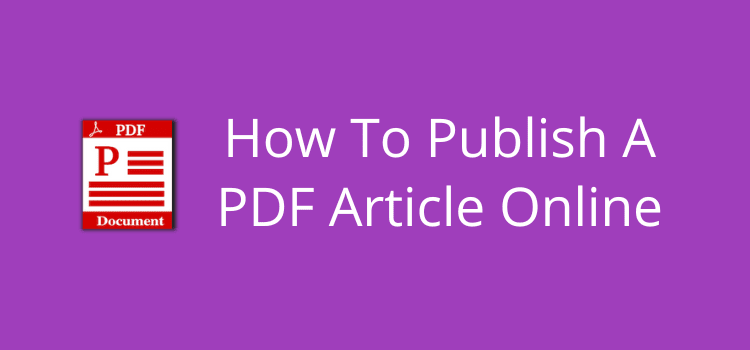
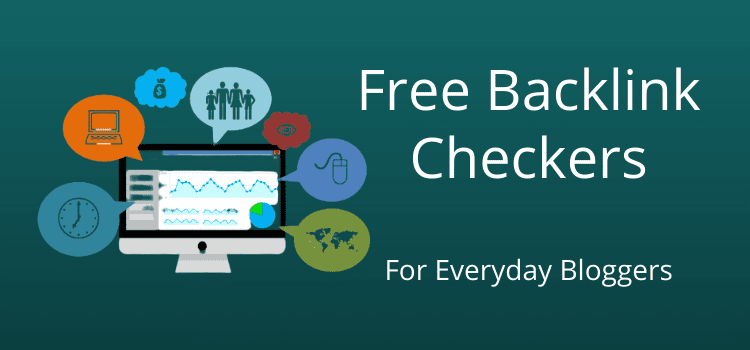
My issue is not about taking up the piracy issue with the pirates, which the Amazon T&Cs stipulate. I don’t know who and where they are, and Amazon is keen to protect them and pay them the royalties that are rightfully mine.
I have problem with my book being sold on amazon with different titles/cover author names, but the exact content inside. In the past six months I have found 9 different versions. For each one I report it to amazon and eventually it gets removed. However, they are clearly not shutting down the account. The seller is listed as Amazon.com Services LLC, the author names are phony and Amazon will not reveal any information about the “pirate” so I have no recourse. The pirated versions are cheaper than mine so taking sales from me. One showed at the top of the search for my book (mean while, I am paying for ads.) Another version made #1 in hot new releases.
How is it that Amazon is not responsible but the poor lady who posted above was sued for 6K?
This would make a great class action law suit.
How do you know when/if your books have been pirated?
This is a whole new idea for me – I had no idea it was being done or how
My over 20 multilingual educational books based on classics are sold on Barnes and Noble, AbeBooks, Book Depository, on Amazon (just some – Amazon gets the main part of royalties when selling through world-wide distributors; it does not need necessarily to show all my books on its USA page), and on many international book sites. I started self-publishing my books on Createspace in 2010 and had received little monthly royalties regularly till May 2020. In May 2020 KDP/Amazon banned me from my book portal and they stopped paying royalties. Now I can order my own brand new books online for the prices created by retailers – just to trace this print-on-demand process. In the meanwhile, the royalties are going to all these sellers, suppliers and distributors, including Amazon – from across the world distribution. My books are in 5 languages and they are based on world classics and they include grammar. My multipage Claim is in Amazon legal department now. How long this wide-spread official piracy and robbery of my books will be going on – I do not know. My books are by Zoia Sproesser (2010-2014- last name by marriage) and Zoia Eliseyeva (2015-2017 maiden last name). While investigating this “economic/intellectual” crime with my books I just want the authors to know that it is possible that everybody sells your print-on-demand books and you do not have a cent for them. This is what has been going on with all my books for two months. My open profiles by my name are on all public platforms. Zoia Eliseyeva, instructor of languages, on August 6, 2020 from California, USA
Well at least I have a semi-funny story.
Years back I wrote a book about ghosthunting by a fictional character, Romulus Crowe. He’s the MC in several of my books. A non-fiction book by a fictional author. I put it on ‘Lulu.com’ so I could get a couple of copies for fun, then forgot about it. I was, at that time, also running a blog under that entirely fictional name.
Well, someone contacted me through the blog to tell me that someone was selling ‘my’ book on eBay. This led to me having to contact eBay *as Romulus Crowe* to get it taken down. To their credit, they did,
So a fictional character writes a non-fiction book then has to get ebay to take down pirate copies. I thought it was funny since the book hadn’t sold a single copy at the time. Pirating a dud seemed like a lot of work for nothing.
Then, much later, Lulu sent a tiny amount of money. I had forgotten the book by then. Apparently it had actually sold a few copies. So I made a bigger, second, edition. That sells in tiny amounts too.
I made up Romulus Crowe out of thin air and I’ll now never escape the image of the smug swine’s face because he sold a book before I did. Still, I have plotted his death in a future episode so I will have my revenge.
I have to vent this here, because I am so over the moon right now. I have a fresh, a little different, experience with this topic. I was THRILLED when today I found that my book is for sale on Amazon!
I am flabbergasted, speechless, amazed.
See, I am not a writer. I have never published anything myself, but someone has taken some of my writings off an internet site and is selling them for profit! As an actual book! Well, not a printed one, just a kindle book, but still. I am very, very flattered by this.
I could never make money from writing myself, because the communist country that I live in forbids selling on Amazon without going through hoops that for someone with not the least kindling of business sense are impossible. Now, I am kind of published author anyway! For me, book piracy is a huge win. A dream come true, actually! Just about the best thing that has ever happened to me. I hope it makes someone money. I wish them all the luck in the world.
Also, it says on the listing that the seller is Amazon.com Services LLC …. Are they just obfuscating the real seller or is Amazon actually itself selling my book that I have not published myself? Mindblown.
If authors would work together… we’d be in a better position, instead we cry about it on Twitter.
Respect comes from unions.
I have been selling used books on line for over fifteen years, I did not even know they was such a thing as counterfeit books, I found out about it when I was sued last year and accused of running a counterfeit book ring! Now I am a 55 yo grandmother who sells books I find at hard sales, thrift stores and recently (but not anymore) Amazon return bin stores. I make enough money to pay for my thrifting adventures, and buy a few things for family members, hardly the money I would assume a book counterfeit we would make. Never the less, for selling three books they say we’re counterf, I was fined SIX thousand dollars, that is more than I make selling books in two years! I would have liked a warning, as I stated, it may seem unreadable, but I didn’t even know the books were counterfeit. The books in question all came from the store that buys bins from amazon! Amazon had to know they were selling counterfeit books, but they did not get in trouble, the lawyer that sued me did not give a darn that the books had come directly from amazon. I got screwed and did not even get a bottle of wine before hand!
Sorry about the errors, wrote this on my phone, and auto correct must hate me
Years ago, I had a free download on my site as a newsletter lead generator. I discovered four different sellers had taken the pdf and published it on KDP using my name as a pen name. I contacted them, and they took it down.
The irony of this is that Amazon does have the capability to check for plagiarism. I have run into this myself when including content that I have previously published on the web. The book gets embargoed until you can prove you hold the copyright. This was a very common problem on Createspace. The annoying thing is that apparently they didn’t have any sort of flag that you did prove your rights to the content and people would repeatedly have their book pulled off the marketplace and have to go through the content verification process all over again.
I tried to deal with pirated copies a while back. These were free downloads on strange sites with no clear link to the owners or distributors. Sending a takedown notice got me nowhere, and since contact info was so hard to come by if it existed at all, I ended up deciding not to waste my time.
I don’t have any bestsellers, but my electronic files still tempted the crooks. I don’t have any ideas for action, other than to decide how much time you want to invest in trying to win this game.
One site that will actually respond is Internet Archive. They claim not to publish copyrighted material, but they do.